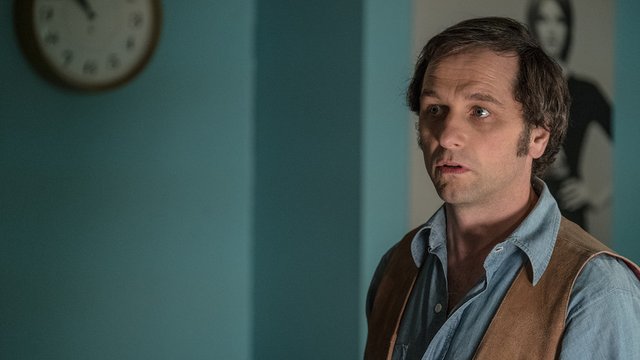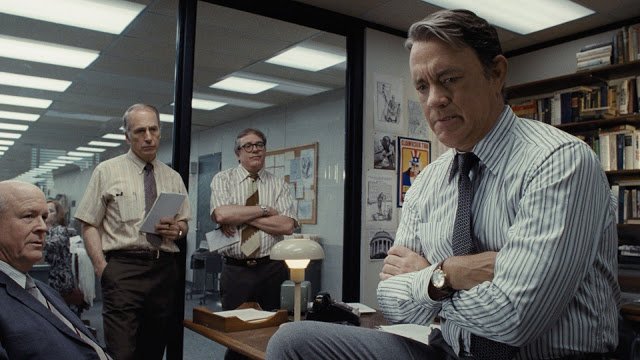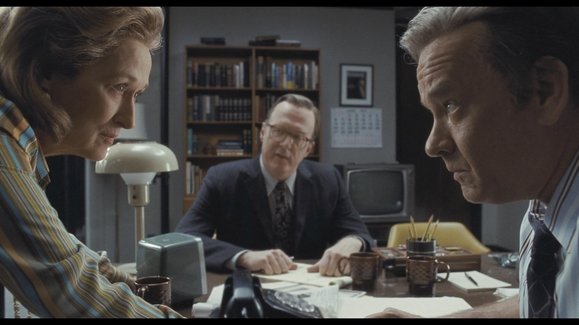The Post tells the story of what seems to be a very different time.

The Vietnam War has been raging for years. The government is constantly telling the American people that are winning the war, but in reality behind closed doors the leaderships knows that it isn’t winning. We are sending young men over there to die for something they already knew we were losing.
But this story isn’t even fifty years old yet.
A military analyst, Daniel Ellsburg follows troops into Vietnam to record what is going on for Secraty of Defense Robert McNamara. McNamara on the plane back to the US, states that the war effort is failing, yet when the plane lands he tells the waiting reporters that things are improving on the ground in Vietnam.
Fast forward several years later, and Daniel Ellsburg is working at the RAND corporation, a military contractor, where he steals top secret documents about the war, that shows the government has known for years it was failing. He has them copied, and then he gets them to The New York Times. Speilberg does not show us this part, once Ellsburg steals and copies the papers, the story is told completely from the side of The Washington Post.

Spielberg tells the story of when The Washington Post was a private local newspaper and is transitioning into a publicly held company, in order to keep the newspaper afloat. Meryl Streep plays Katherine Graham who ran the Post after her husband passed away, who had inherited it from her father. During this time she is enjoying trappings of being well connected, by having dinner parties with the powerful, including Bob McNamara the at the time Secretary of Defense. Graham is also having to negotiate The Posts transition to its IPO, while being a woman in a man’s world.
/cdn.vox-cdn.com/uploads/chorus_image/image/57562483/the_post_dom_NOR_D30_071017_204253_204322_R_COMP_rgb.0.jpg)
Tom Hanks plays Ben Bradlee the editor of The Post. Bradlee is looking for the “big story.” He senses something is coming when New York Times investigative report Neil Sheehan has gone silent for awhile, he hasn’t posted a piece for the Times in a quiet awhile. That is very unnerving to Bradlee, so in an effort to find out what he is working on, Bradlee sends an intern to New York to see if he can find out what Sheehan is working on. The intern of course does not find out what Sheehan is working, but he does see the plan that a Sheehan story will break on the front page of the Times the next day. While The Post will have nice pictures about the wedding of President Nixon’s daughter.
Bradlee throws a copy of The New York Times with the article from Sheehan, the first about the Pentagon papers, and the Post’s with nice wedding coverage. “Wouldn’t it be nice to report the news, as opposed to reading it!” he declares to his staff.

This is a story told before social media, when news broke on Twitter. This was even before the 24 hour news coverage of CNN. This story is told when newspapers broke stories and the public wouldn’t read them on their phone, but early in the morning when they were delivered to your doorstep or when you bought a paper at a newsstand.
And Spielberg emphasizes this difference and tension, by having close-ups of the newspaper printing press, to show just how difficult it was to get a story out. Reporters didn’t bang out a story and upload it to Blogger or Wordpress, but it was sent to editorial for editing, which was then sent downstairs for the typesetting. It was different world.

The cinematography by longtime Spielberg cinematographer Janusz Kamiński, uses low angles, shots in the newsroom are set at just below the level of the desks the reporters work. Making the room and the work feel uptight, crowded, and rushed.
The tension in the story is through conversations and the law. The New York decided to stop printing information from the Pentagon papers when a judge handed down an indictment, thus making any newspaper that published information from the Pentagon papers in violation of the law.
The story lead inevitably to the Supreme Court, where they rule in favor of the newspapers and the first amendment.
Final Thoughts
This isn’t a ground breaking Spielberg movie. But he does a wonderful job at raising the tension in a story that does not involve one chase scene or murder. Hanks and Streep give excellent performances here. I would recommend seeing this at the theater if you are someone who needs to see all the Oscar nominated films, as Meryl Streep is nominated for best actress and the movie itself is nominated for Best Picture. It is not my prediction that this will win, but then again, I don’t get to vote.

I would recommend this movie, especially to remember a time when news wasn’t twenty four hours a day. Streep’s performance is Oscar worthy as she grows from someone who stumbled into owning a newspaper to being the leader of the newspaper. And it is a slow and subtle shift, but when the transition happens, Streep is able to pull the transition off masterfully.
Your review makes me want to see the movie. I loved All The President's Men too. I hope The Shape of Water wins something this year too!
Downvoting a post can decrease pending rewards and make it less visible. Common reasons:
Submit
this is goof review of the movie, usa loosing the battle field in vietnam and try to cover it but didn't success. took tne name of movie for watching.
Downvoting a post can decrease pending rewards and make it less visible. Common reasons:
Submit
Looks fantastic, concerning powerful women moving things forward -- while men go rotten. Good cast.
Downvoting a post can decrease pending rewards and make it less visible. Common reasons:
Submit